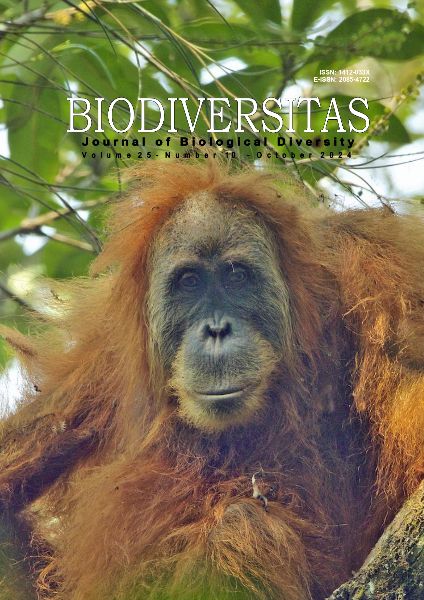Response of transgenic tobacco with P5CS gene expression to polyethylene glycol-induced drought stress
##plugins.themes.bootstrap3.article.main##
Abstract
Abstract. Riduan A, Santoso D, Sudarsono. 2024. Response of transgenic tobacco with P5CS gene expression to polyethylene glycol-induced drought stress. Biodiversitas 25: 3974-3984. Drought stress, a significant obstacle in plant growth and production, can be effectively addressed with the use of polyethylene glycol (PEG). This treatment has shown promise in screening plant germplasm responses to drought stress. The objectives of this experiment were to determine the effects of stress due to PEG treatment at 0%, 5%, or 10% concentration on growth, leaf proline content, and their correlation to stress responses in the T1 seedlings derived from five T0 transgenic Gombel Shili (GS) tobacco P5CS. Positive results of total nucleic acid PCR analysis in T1 seedling populations derived from each of the T0 plants indicated that the regenerated T0 plants were transgenic tobacco integrating P5CS transgene. Results of the experiment revealed that the effects of stress due to PEG treatment indicated stress due to PEG treatment (5% or 10%) reduced the growth plants of all tobacco plants. The stress sensitivity index categorized the T1 plants P5CS transgenic GS tobacco into tolerance, medium tolerance, and sensitivity against PEG-induced stress. Notably, the T1 plants P5CS transgenic GS tobacco exhibited better growth with higher plant height, leaf, biomass, and root dry weight compared to non-transgenic tobacco under stress and non-stress conditions. The over-expression of the P5CS gene led to a significant increase in leaf proline content after drought stress was observed in all transgenic tobacco compared to non-transgenic tobacco.

